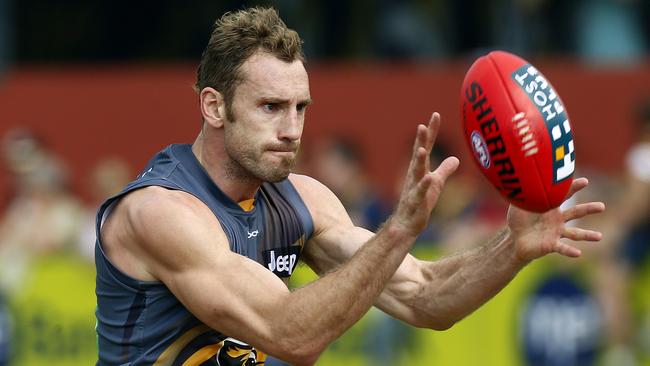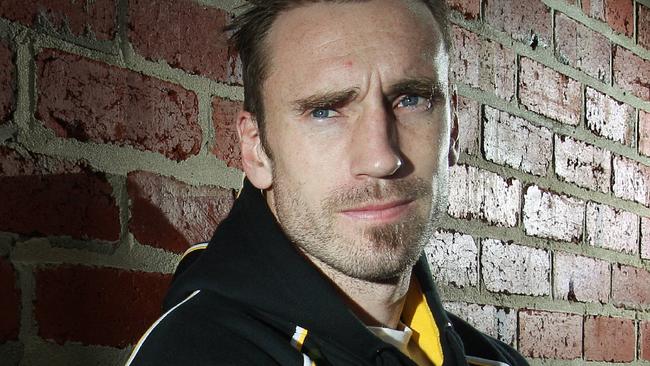AFL concussion rules to be scrutinised in Shane Tuck coroners probe
AFL concussion rules will be looked at by a coroner investigating the death of Tiger’s hardman Shane Tuck.
News
Don't miss out on the headlines from News. Followed categories will be added to My News.
AFL concussion rules will be scrutinised as part of an investigation into the death of footballer Shane Tuck.
The Tigers hardman — who took his life in July last year — was later diagnosed with a degenerative brain disease linked to repeated head knocks.
It’s the same condition St Kilda great Danny Frawley was suffering at the time of his death.
Tuck’s declining mental health is also set to be examined, including what support, if any, he should have received from the league and players association.
Coroner Simon McGregor, in a hearing on Tuesday, said the circumstances of Tuck’s death were different from those surrounding Frawley because he played AFL when the dangers of concussion were more well known, with specific rules to mitigate the risk.

Mr McGregor said he’d already received a report showing correlation between the brain disease, called chronic traumatic encephalopathy (CTE), and participation in contact-based tackling sports.
“In this investigation that I have before me this is a player, Shane Tuck, who played in the modern era under the protection of the policies that were around,’’ he said.
“My preliminary view is that the research that has actually been produced to me certainly shows this correlation between a genuine risk of profound lifetime injury in a profit-motivated workplace featuring a high turnover of young people and therefore a long aftermath trail for any consequences.
“But this is just the beginning of an investigation.”
It’s proposed the coronial investigation will examine whether there was a link between head injuries Tuck sustained during his 173-game career and his later diagnosis with severe CTE.
It would also assess whether — in light of current research — the AFL’s rules and policies are reasonable and proportionate to address the risk of CTE when players suffer a traumatic brain injury.

Tuck’s post-footy career as a professional boxer between 2015-17 would get similar scrutiny.
The investigation’s draft scope also included any relationship between Tuck’s mental health issues and his CTE and what role and assistance, if any, the AFL and
AFL Players’ Association should have been provided.
Mr McGregor said, based on his own international research, an NFL-style trust to fund medical research could be a way of improving knowledge about CTE.
“That seemed to have a very well balanced, sustainable approach to improving science and improving the research,’’ he said.
“I’d like to know whether those sort of things are under consideration.
“There is a chance here for cross pollination between sports and codes that have differing standards and that’s something I want to take a moment to look at.”
Stephen Meade, representing the AFL, told the court the league encouraged players to donate their brains to science and acknowledged medical advice showing there can be an association between head trauma and CTE.
“It’s our position though that it is a matter in respect of which further research is needed in order to establish the link and the nature of that link,’’ he said.
Tuck played AFL between 2004 and 2013 — the court hearing during this time the league used neuropsychometric testing and “symptom resolution” to deal with concussion which sometimes saw affected players return without any mandatory lay-off.
A mandatory 12-day break after a concussion will be introduced this season.
Boxing generally had a minimum 30-day lay-off following a knockout.
It’s yet to be decided if a full inquest will be held.
For crisis support, please contact Lifeline via lifeline.org.au or 13 11 14, and Beyond Blue via beyondblue.org.au or 1300 224 636.





